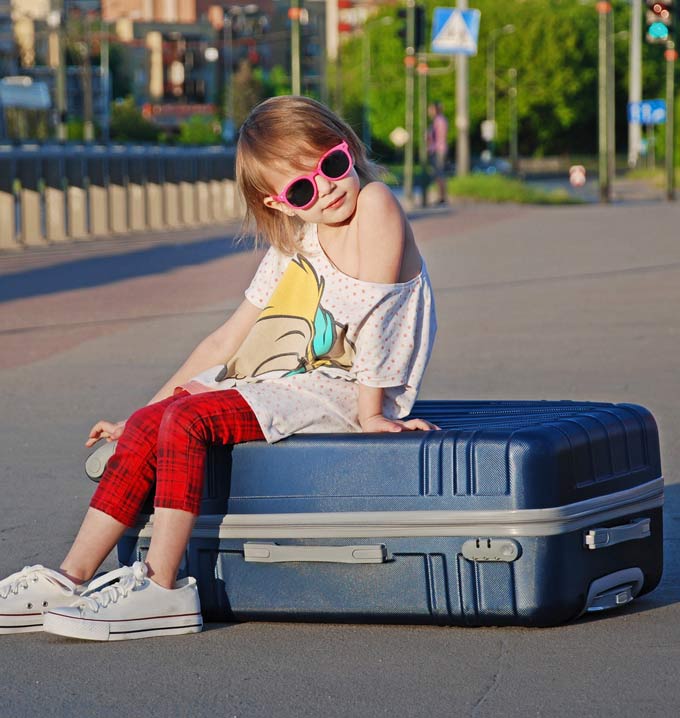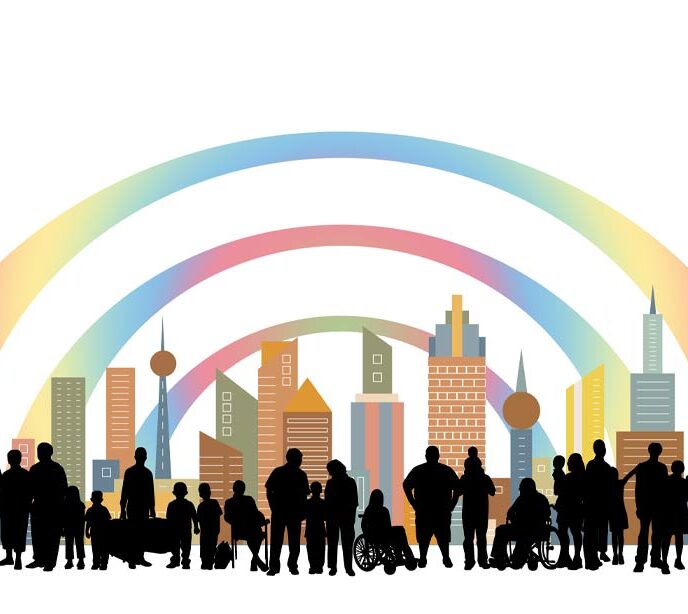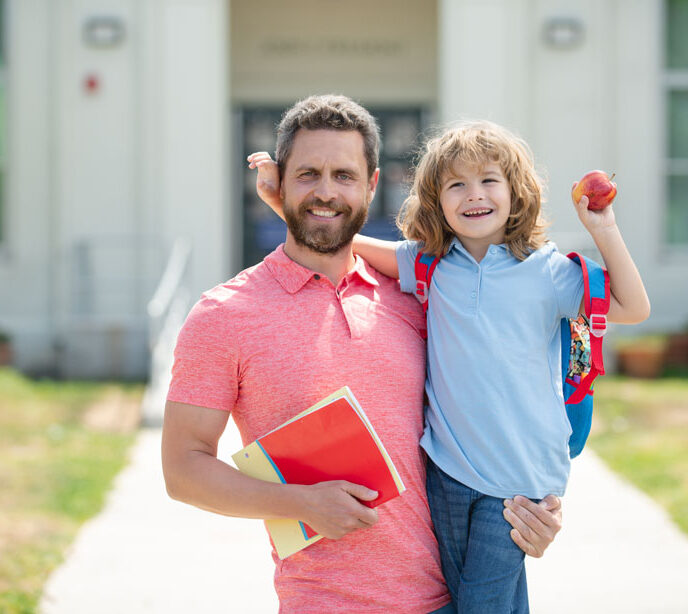Preparing for a Trip With Autistic Children
As with any travel plans, preparation is key. It is especially challenging when traveling with an autistic child. From finding autism-friendly destinations to transport options and even insurance, ensuring you prepare well will reduce risks and make the trip a happy experience for everyone.

Preparing for a Trip With Autistic Children
Planning any family trip or vacation is always fun but also incredibly stressful. This becomes even more challenging when you need to prepare for a trip with an autistic child. Apart from the normal checklists any trip requires, parents who combine the challenges of autism and traveling have to consider many other factors.
From managing your and your child’s autism-related travel anxiety to ensuring their safety and comfort in new environments, here are a few tips on how to reduce risks and increase the fun on your next trip.
Planning the trip
The planning phase of the trip is crucial to travel for a person with autism. It requires extra attention and preparation to ensure that the child’s needs are met at every stage of the trip so that everyone can enjoy the vacation.
Research your destination
Before you book anything, research your destination to ensure that it is suitable for your child. Highly stimulating experiences like amusement parks, playgrounds, and performance venues can be overwhelming for children, especially those living with sensory overload.
Consider destinations like Sesame Place, the world’s first theme park to be designated as a certified autism center. They have trained staff who are knowledgeable about autism and how to provide support to individuals with sensory sensitivities as well as sensory guides to help families plan their visit and navigate the park. There are also quiet rooms where visitors can take a break from the noise and crowds and have some downtime.
Here is a comprehensive list of questions you can forward to any prospective destination to assess their readiness to host you and your child:
- Can you tell me how long the wait times are?
- Where can we find our room or seat?
- How long does the program, event, or attraction typically last?
- What sets your location apart from others like it?
- Do you offer sensory guides for your guests?
- What type of training do your employees undergo, if any?
- Are there any times when staff members won’t be available to assist me?
- Do you have any employees who specialize in autism?
- How many people are usually around?
- Is the street typically busy?
- What kind of view can we expect from our room or seat?
- How noisy is it usually?
- Is it generally quiet during the night?
- Is it hot and humid outdoors?
- What material are the seats/linen made of? Cloth, leather, or plastic?
- Is it possible to receive a menu beforehand?
- Am I allowed to bring my own food?
- What kind of food substitutions are allowed?
- How far away is our room from the pool and kitchen?
- Do you use scented detergent or cleaners in the rooms?
- Where is the garbage and waste collected, and how often is it done?
- Is there a designated area where I can take my child if they become overwhelmed?
- How easy is it to get to that space?
- What safety procedures do you have in place in case of a medical emergency?
Special travel insurance
Autism travel insurance is a type of travel insurance that’s specially designed to provide extra coverage and protection for people with autism when they’re traveling. Beyond normal travel coverage, special autism travel insurance can also cover additional expenses that may arise due to autism-related incidents.
For example, if someone who is autistic experiences a behavioral or sensory meltdown during their trip, the insurance can help cover any costs associated with that incident, like the cost of a hotel room or a medical professional’s assistance.
Autism travel card
An autism travel card is a special card or document that autistic children should carry when they travel. It helps to let transportation officials and other service providers, like hotel staff, know that your child is autistic and might need some extra help or accommodations during their trip.
The card usually has basic information like their name, age, and picture, along with details about their sensory needs, communication preferences, and any other support they might need. Combine the card with a list of your child’s specific issues so that if they get lost or wander off, adults who find them are able to respond accordingly.
Different organizations or agencies might have their own version of the card, but they all serve the same purpose.
Preparing your child
This is perhaps the most important aspect of the trip. Both you and your child may be entering an unfamiliar environment which can spark anxiety and serious behavioral reactions.
Ensuring that your child is well prepared and ready to tackle these new challenges and changes to routine and environment will go a long way to making their and your trip enjoyable.
Create a schedule and social story
Detailed schedules should include the travel process, holiday activities, meals, and breaks. This will help your child feel more comfortable and reduce anxiety.
It’s a great idea to illustrate the schedule in a picture and/or word social story. This will help them understand what to expect and feel more comfortable with the unfamiliar experience.
Include pictures or descriptions of all aspects of the trip, especially when you combine autism and air travel. Make sure to illustrate security processes, the terminal, the airplane, hotel/accommodation, activities etc. You can also add sensory experiences that your child may encounter during the trip, such as ear-popping during takeoff and landing.
These concepts require reinforcement. A useful technique is to get your child to explain the schedule back to you repeatedly. You can also mark the departure date on a calendar at least three weeks before and get them to mark each day off.
Additional training
If you find your homespun efforts are falling a little short, then consider travel training for autism, a program that helps autistic children learn how to travel in a more structured way. It teaches them many of the skills and knowledge they need to be able to navigate the trip, while also helping prepare you as a parent.
Travel training programs can vary depending on the specific program, but they usually include a mix of classroom instruction and hands-on training. These could include exposure therapy where the child can be acclimated to certain sensory stimuli like sand, snow, escalators, or even the feel of wearing a bathing suit.
On the way
Release pent-up energy
Travel often requires long periods of sitting still and being quiet, which can be challenging for children who have a lot of energy. To help your child relieve any pent-up energy before departure, encourage them to engage in high motor activity.
Activities that involve gross motor movements, such as running or jumping on a trampoline, for approximately 20 minutes, can be especially helpful. This type of activity can help your child release energy and reduce feelings of restlessness, making it easier for them to remain calm and comfortable during the journey. Many airports now have child play spaces that would be ideal for a pre-flight activity session.
Bring items of comfort along
Comforting items from home, such as a favorite blanket or toy, help your child feel more at ease in unfamiliar surroundings. You should also consider not washing certain items to keep the smell of home constantly present as a comfort in times of distress.
Sensory supplies
A good idea is to keep a bag of supplies in the car based on what you know about your child’s needs and their sensory sensitivities. Consider giving your child a small backpack with items they can access on their own as well.
Include sensory blockers like headphones to help with noise hypersensitivity. Other helpful items for sensory relief can include portable fans, hand sanitizer, and moisture-wicking towels.
While you’re there
Once you arrive at your destination, it is important to reinforce much of the preparation that was done with your child and ensure that the venue/accommodation can deliver on what was presented. You also need to be prepared for any eventuality you may not have considered.
Establish a routine
On arrival, it is important to remind your child of all the preparation that was done and then establish a routine for the rest of the vacation. Use all the tools you would at home to make them immediately comfortable in the new space, and put up the schedule you prepared as a visual reference.
Plan for sensory breaks
Your child may need breaks from sensory stimulation, so plan for quiet or calming activities during the trip. This can include activities like reading, drawing, or playing with sensory toys. Assuming you booked at a certified autism center, the resort, hotel, or park may offer specially-designed facilities for this.
Inform all service providers
Let hotel staff and tour guides know about your child’s needs in advance so they can be prepared to provide any necessary accommodations. It is, however, important to remind them when you arrive and during the stay, as staff can rotate, or your instructions may not make it all the way down to the cleaners, waiters, and other service staff.
Have a backup plan
With all the planning and preparation in the world, there will always be situations that you cannot anticipate. In these cases, you need an emergency backup plan to mitigate any unforeseen stimuli, changes, or triggers that could overwhelm your child.
This could include returning to your hotel room for a break or finding a quiet, less stimulating activity. To avoid unnecessary anxiety and distress, be prepared to stop any activity immediately to limit the impact on both you and your child.
Lighthouse Autism Center, a partner on your autism journey
Planning for any changes in your child’s life is a challenge. Let Lighthouse Autism Center help you navigate these spaces through their innovative programs and products like their Lighthouse Fusion ABA Therapy and the numerous autism resources they house on their website.
Together, we can unlock your child’s potential
Related News

06/11/2025
Overcoming Stereotypes
Autism stereotypes are common and can have significant social consequences for autistic children. Misconceptions hinder the acceptance and inclusion of autistic children. Challenging these stereotypes is vital for creating a more understanding and supportive society. Challenging Common Autism Stereotypes When people hear the word “autism,” they often imagine a narrow set of images, like the […]

06/11/2025
What’s Next After ABA Therapy?
There are a number of reasons why an autistic child might stop ABA therapy, and one is that they have reached their goals. In this article, we take a look at what parents can expect going forward. What Are the Next Steps After ABA Therapy? As a parent, you only want what’s best for your […]

06/11/2025
Do Babies with Autism Smile?
We take a look at the importance of early intervention, some of the milestones for parents to look out for, and the more common signs of autism in babies. Do Babies with Autism Smile? Watching your baby grow is an exciting time, certainly one of life’s quiet wonders. From those first sleepy stretches to the […]


